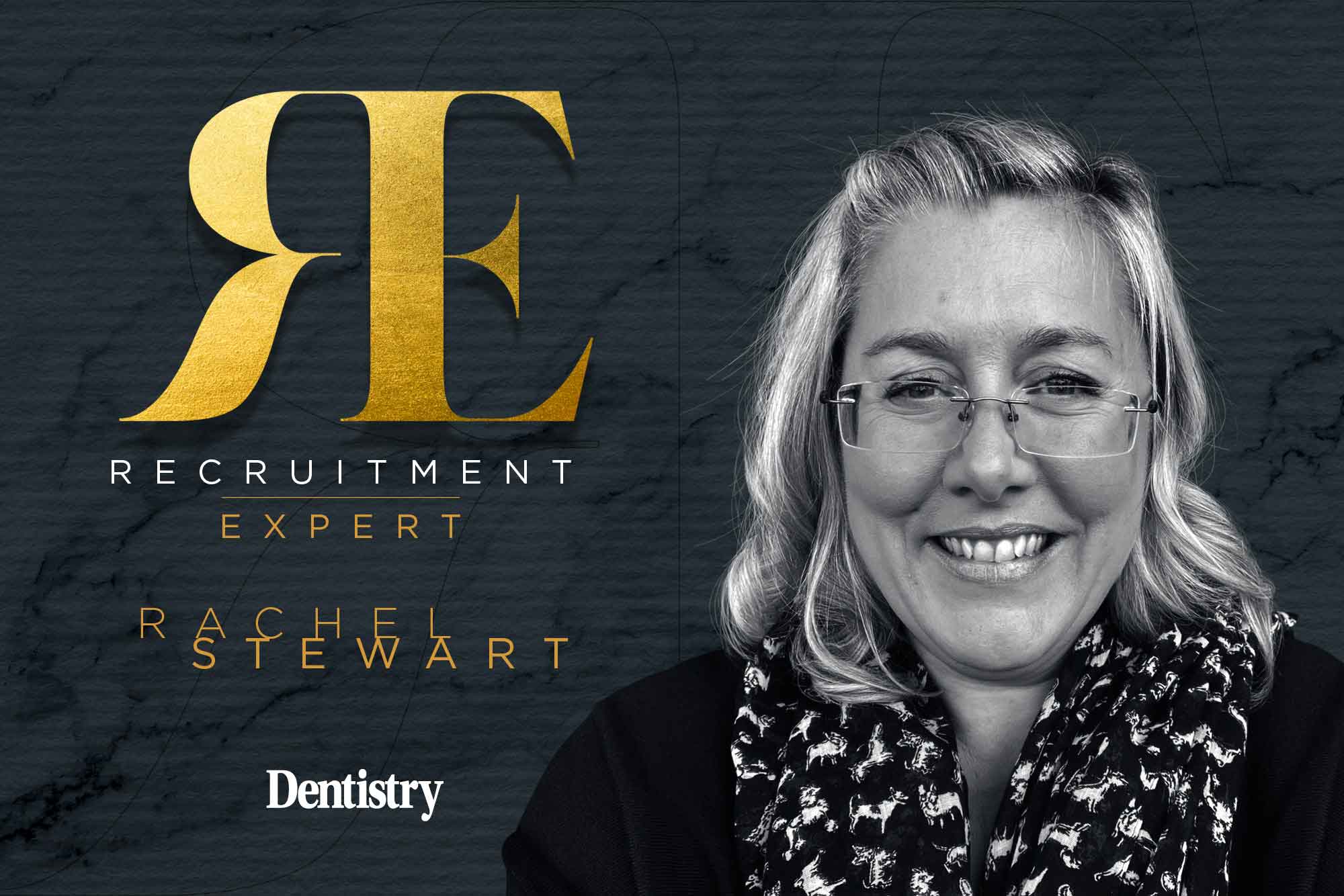 In a new column, Rachel Stewart explores the recruitment crisis currently facing dentistry and the innovative ways practices are finding to recruit.
In a new column, Rachel Stewart explores the recruitment crisis currently facing dentistry and the innovative ways practices are finding to recruit.
I don’t think anyone would disagree that recruitment is one of the main challenges facing our industry. It has been for quite some time.
I head a team of almost 30 resourcing professionals. Whilst we’re hiring more people than ever, we’re finding it increasingly difficult to keep up with the demands of our successful dental practices.
This means we’re starting to see increases in the time it takes to fill vacancies. As well as higher attrition levels than we’d like.
It’s a ‘perfect storm’ with several external pressures converging to create an environment quite unlike any we’ve seen before.
I thought it was challenging finding Cat-S testers for safety critical rail projects in a former role. They were the proverbial hens’ teeth!
Now though, it’s proving tougher to secure clinicians in rural and coastal locations. The market is throwing up new challenges that require new solutions for us to weather the storm.
Brexit
There’s been a shortage of qualified dentists in the UK for some time. So we’ve often sought to bring talent from overseas to fill key gaps.
Approximately 17% of the current registered UK dentist workforce has an EU/EEA degree.
Given the time it takes to train a fully qualified dentist, we’ll need to continue to recruit from overseas for the foreseeable future.
Previously EU citizens didn’t need a visa to work here. But new rules brought in this year now require them to comply with a points-based immigration system.
This presents new challenges for employers who will need to take on sponsorship arrangements. These will usually need to be based on an employment contract. So practices may need to work with more employed, rather than self-employed, dentists. And there are costs associated with this.
COVID-19
The global pandemic has added additional pressures related to Brexit.
It’s usual for overseas dentists to travel back and forth between their home country and the UK to complete registrations, CPD and training. This hasn’t been possible due to travel/quarantine restrictions.
The LDS/ORE/PLVE processes – which are a requirement for non-EU/EEA dentists to get an NHS performer number – were paused during 2020. This resulted in a huge backlog of clinicians seeking a role within the NHS. They’ve been unable to take the relevant exams and complete the validation process.
It will further exacerbate the historic challenges of insufficient exam places. This will mean the backlog will only continue to grow and further reduce our ability to source talent from overseas.
Another effect of the pandemic is the competition it’s creating for jobs.
Job vacancies are currently at a record high. Dental employers are not just competing against each other for talent. They’re also having to compete against other industries.
The clearest example of this is dental nursing.
One recruitment website reported a 46% rise in vacancies and a 72% increase in salaries for dental nurses this year compared to 2020.
There’s more job opportunities available in other sectors, such as hospitality and retail. They can offer higher salaries and benefits and are perceived to have less responsibility and stress than a role in dentistry.
That means there simply aren’t enough candidates coming through the pipeline, quickly enough, to meet practice needs.
Ongoing NHS contract reform
The challenges NHS dentistry faces are well documented. But the pandemic is making these more acute.
Where there is a workforce shortage, wage inflation and increased running costs, the ability of NHS practices to compete with private practices, which can pass increased costs to patients, will only become more of a problem.
Morale is also low. Recent surveys indicate that half of dentists are likely to reduce their NHS commitments in the next year. And they’re likely to seek a career change or early retirement.
It’s difficult for employers to make NHS dentistry an attractive career option. More rural and coastal areas will become the hardest areas to recruit in.
While there are certainly rough seas ahead, the current storm is forcing employers to be more innovative in their recruitment efforts.
We’re taking on sponsorship arrangements for overseas trained staff. This is driving some to shift from self-employed to employed contracts.
We think it’s important to offer clearly defined career pathways. It allows clinical colleagues to build and plan the career that’s best for them.
We have a whole department dedicated to the training and development of our people. We utilise technology to deliver this in new and innovative ways.
Dentistry continues to be a rewarding career choice. Ultimately it’s about delivering career satisfaction with long-term solutions so that we can better meet the needs of our patients.
Follow Dentistry.co.uk on Instagram to keep up with all the latest dental news and trends.
For more information on Bupa Dental Care, visit jobs.bupadentalcare.co.uk.

